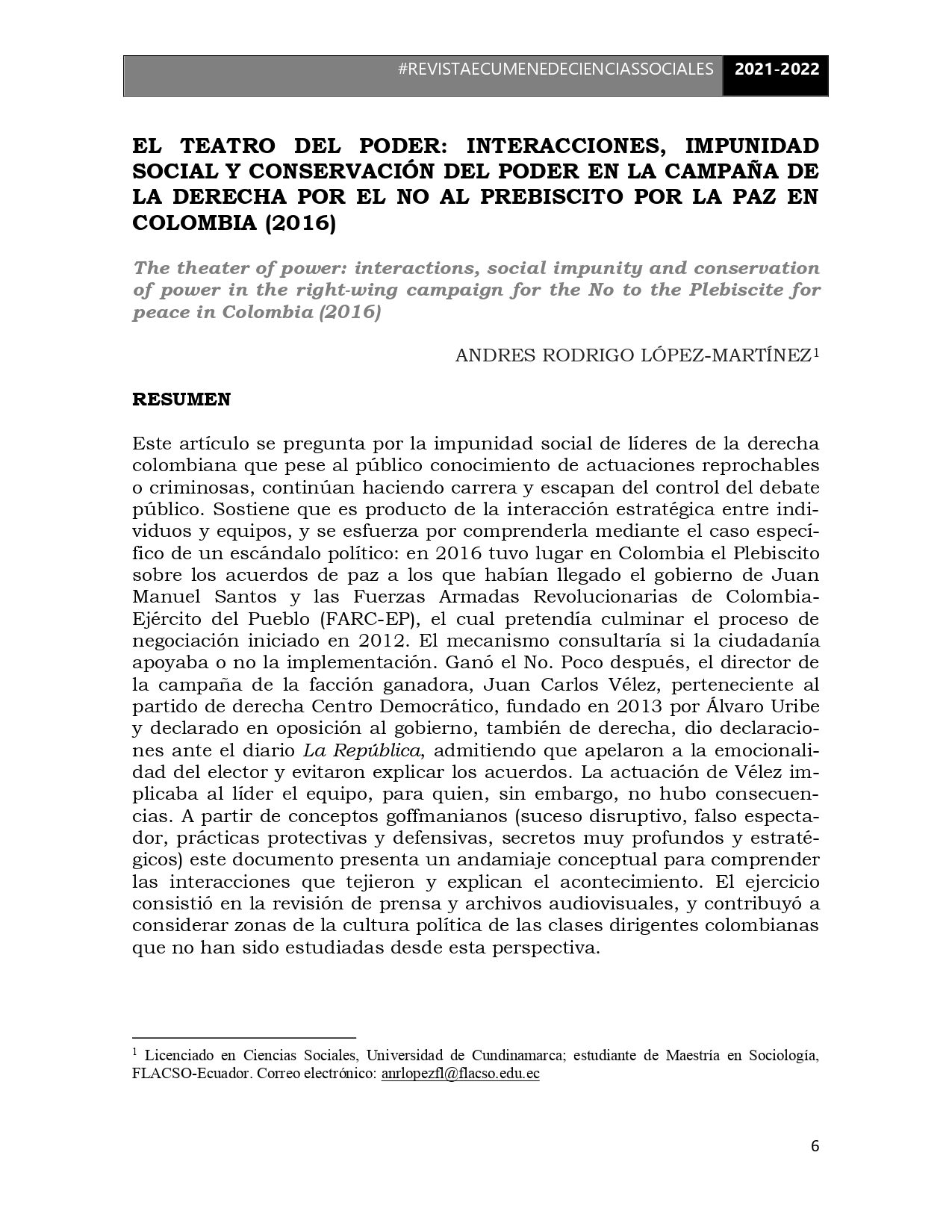Abstract
This article asks about the social impunity of leaders of the Colombian right who, despite public knowledge of reprehensible or criminal actions, appear to be making a career and escape the control of public debate. He maintains that it is the product of the strategic interaction between individuals and teams, and he strives to understand it through the specific case of a political scandal: in 2016, the Plebiscite on the peace agreements reached by the government of Juan Manuel took place in Colombia. Santos and the Revolutionary Armed Forces of Colombia-People's Army (FARC-EP), which sought to complete the negotiation process that began in 2012. The mechanism would consult whether or not the citizens supported the implementation. The No. won. Shortly after, the campaign manager of the winning faction, Juan Carlos Vélez, belonging to the right-wing Democratic Center party, founded in 2013 by Álvaro Uribe and declared to be in opposition to the government, also from the right, gave statements before the newspaper La República, admitting that they appealed to the voter's emotionality and avoided explaining the agreements. Velez’s performance implicated the team leader, for whom, however, there were no consequences. Based on Goffmanian concepts (disruptive event, false spectator, protective and defensive practices, very deep and strategic secrets), this document presents a conceptual scaffolding to understand the interactions that weaved and explained the event. The exercise consisted of reviewing the press and audiovisual archives, and contributed to considering areas of the political culture of the Colombian ruling classes that have not been studied from this perspective.

This work is licensed under a Creative Commons Attribution-NonCommercial-ShareAlike 4.0 International License.
Copyright (c) 2022 Revista Ecúmene de Ciencias Sociales

